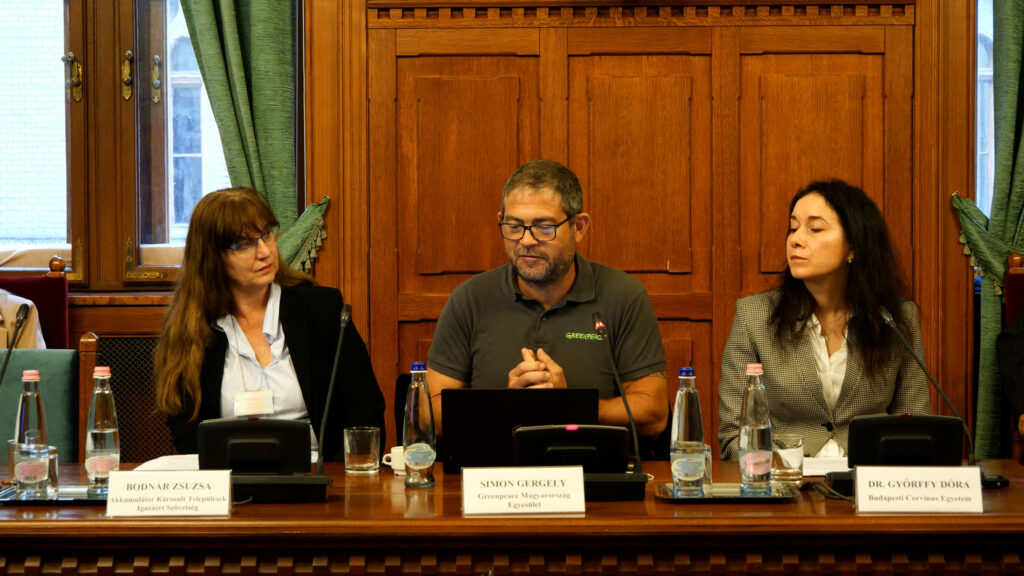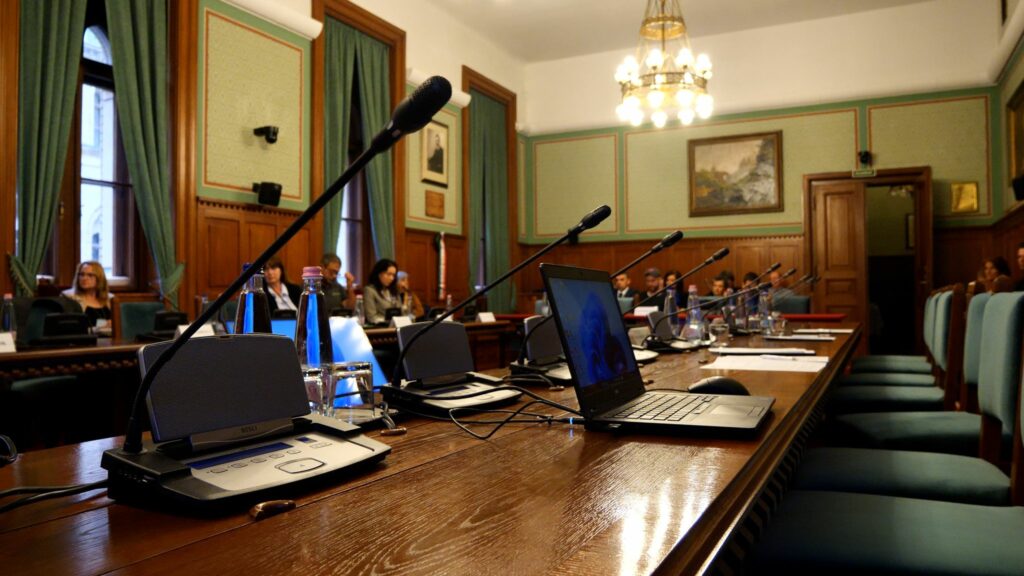The https://english.atlatszo.hu use cookies to track and profile customers such as action tags and pixel tracking on our website to assist our marketing. On our website we use technical, analytical, marketing and preference cookies. These are necessary for our site to work properly and to give us inforamation about how our site is used. See Cookies Policy
Governing party Members of Parliament walked out of the battery industry commitee meeting
Months of date-setting preceded a meeting of the Parliament’s Sustainable Development Committee on 16 April, where the issue of battery investments in Hungary was planned to be one of the items on the agenda. However, invited representatives from the ministries did not even attend the meeting, and government party Members of Parliament left the room when the issue was raised.
On the morning of 16 April, the Hungarian Parliament’s Committee on Sustainable Development met to discuss the malpractices of domestic battery production and waste management. However, government representatives did not attend the meeting, so there was no quorum.

Several promises had previously been made by representatives of the Ministry of Foreign Affairs and the Ministry of Energy to attend the committee’s discussion of the battery industry’s problems,” said Lóránt Keresztes László, chairman of the Sustainable Development Committee. Despite this, the ministries informed the chairman the evening before the committee meeting that they were not willing to participate. Thus, after the first two items on the agenda, the meeting became inquorate and the Members of Parliament of the government party who had been present left the room to avoid discussion.
In addition to the representatives of the ministries, Dr. Dóra Győrffy, professor of economics, Gergely Simon, regional chemicals expert of Greenpeace Hungary, Zsuzsa Bodnár, representative of the Association for the Justice of Accumulator Damaged Settlements (AKÁRTEIS), a group of NGOs, and Péter Kaderják, CEO of the Hungarian Accumulator Association, were invited to the event. Péter Kaderják, like the government invitees, did not attend the event, so the experts and NGOs present were only able to discuss the issue in an informal session with the opposition members of the Commission.

Zsuzsa Bodnár (AKÁRTEIS Association), Gergely Simon (Greenpeace Hungary) and economist Dr. Dóra Győrffy at the meeting of the Parliament’s Committee on Sustainable Development on 16 April (Photo: Dénes Balogh/Átlátszó)
In her presentation, economist Dóra Győrffy pointed out that no economic analysis had been carried out for the Hungarian battery industry strategy and that, based on the data available so far, the operation of battery manufacturing and processing companies based in Hungary was not helping the Hungarian economy. Dóra Győrffy has previously spoken about this in detail in a podcast on Átlátszó.
Gergely Simon, Greenpeace’s chemical expert, gave several examples of the polluting and environmentally dangerous operation of Hungarian battery industry investments and stressed that the authorities do not sanction polluting companies properly.
Representing NGOs, Zsuzsa Bodnár, a colleague of our newspaper, said that there are numerous violations of the law in the licensing and official control of domestic battery investments and that the Hungarian authorities do not ensure the protection of the environment and the public.
At the event, Örs Tetlák (LMP), deputy mayor of Érd, said that in the case of battery investments, the right to have a say in government decisions is being taken away from the public and the local authorities concerned.
Civilians from several towns, including Debrecen, Sóskút, Göd, Ács, and Bátonyterenye, came to the committee meeting to ask the government representatives for answers to their questions about the operation of plants that regularly violate the rules and emit hazardous substances. However, this time again, no one from the government side was interested in the views of NGOs and professional organisations.
Translated by Zita Szopkó. The original, Hungarian version of this story was written by Zsuzsa Bodnár and can be found here. Video by Dénes Balogh. The article was produced with the support of the Union Values Programme.

